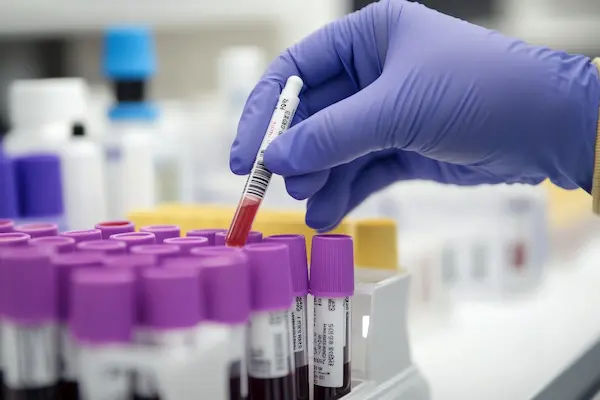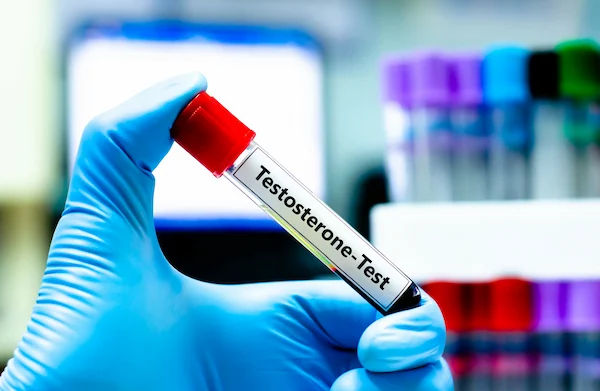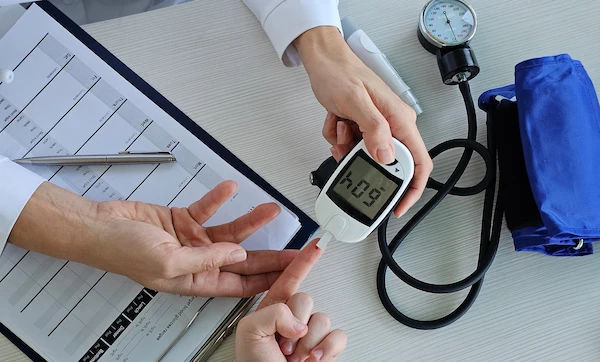Ammonia Testing: Process and Outcomes
Discover the importance of ammonia testing for environmental and industrial applications. Learn about the testing process, common outcomes, and how to interpret the results to ensure safety and compliance.


Ammonia is a natural waste product formed in the body when proteins are broken down. Normally, the liver converts ammonia into urea, which is then removed from the body through urine. However, if the liver isn’t functioning properly, ammonia levels can rise, leading to serious health issues.
An ammonia test measures the amount of ammonia in your blood. High ammonia levels can cause confusion, fatigue, and even life-threatening complications if left untreated. This test is often recommended for people with liver disease, unexplained neurological symptoms, or metabolic disorders.
Why is Ammonia Testing Done?
Your doctor may suggest an ammonia test if you or a loved one experiences:
- Unexplained confusion or disorientation
- Severe fatigue or weakness
- Nausea and vomiting
- Seizures or tremors
- Behavioral changes (irritability, agitation)
- Coma (in severe cases)
This test is especially important for:
- Newborns with unexplained lethargy or seizures (to check for genetic disorders).
- People with liver disease (cirrhosis, hepatitis).
- Those with Reye’s syndrome (a rare but serious condition affecting children recovering from viral infections).
How is the Test Performed?
An ammonia test is a simple blood test. Here’s what to expect:
1. Preparation:
- You may be asked to fast (avoid eating or drinking) for 8 hours before the test.
- Avoid smoking or strenuous exercise before the test, as these can affect results.
2. During the Test:
- A healthcare professional will clean your arm and insert a needle to draw blood.
- The sample is sent to a lab for analysis.
3. Results:
- Results usually come within 2448 hours.
Normal ammonia levels vary by age:
- Adults: 15–45 µg/dL (micromoles per liter)
- Children: 40–80 µg/dL
- Newborns: 90–150 µg/dL
Higher than normal levels may indicate liver disease, kidney failure, or genetic disorders.
Consult an General Physician for a personalised consultation
What Causes High Ammonia Levels?
Several conditions can lead to elevated ammonia, including:
- Liver disease (cirrhosis, hepatitis)
- Kidney failure
- Reye’s syndrome
- Genetic disorders (like urea cycle disorders)
- Certain medications (chemotherapy, valproic acid)
How Can You Manage High Ammonia Levels?
If your ammonia levels are high, your doctor will recommend treatment based on the underlying cause. Some general tips to help manage ammonia levels include:
1. Dietary Changes
- Reduce protein intake (especially red meat, dairy, and eggs).
- Eat more plant-based proteins (beans, lentils).
- Stay hydrated to help flush out toxins.
2. Medications
- Lactulose (helps remove ammonia through stool).
- Antibiotics (like rifaximin) to reduce gut bacteria that produce ammonia.
3. Lifestyle Adjustments
- Avoid alcohol (it worsens liver damage).
- Exercise moderately to support metabolism.
- Monitor symptoms and report any changes to your doctor.
When Should You See a Doctor?
If you or a loved one experience:
- Severe confusion or drowsiness
- Persistent nausea/vomiting
- Unexplained seizures
Seek medical help immediately. Early detection and treatment can prevent complications.
Final Thoughts
High ammonia levels can be dangerous, but with timely testing and proper care, they can be managed effectively. If you suspect any symptoms, don’t hesitate to consult a doctor. Your health is precious; stay informed and take proactive steps!
Consult an General Physician for a personalised consultation
Consult an General Physician for a personalised consultation

Dr. Chaithra H
General Physician/ Internal Medicine Specialist
6 Years • MBBS, MD General Medicine, DNB General Medicine
Bangalore
Apollo 24|7 Clinic - Karnataka, Bangalore

Dr. Suraja Nutulapati
General Physician/ Internal Medicine Specialist
10 Years • MBBS, MD (Internal Medicine)
Hyderabad
Apollo 24|7 Clinic, Hyderabad
(900+ Patients)

Dr. M L Ezhilarasan
General Practitioner
6 Years • MBBS
Visakhapatnam
Apollo 24|7 Clinic - Andhra Pradesh, Visakhapatnam

Dr. Mohammed Kamran
General Practitioner
5 Years • MBBS, FIDM
Nashik
Apollo 24|7 Clinic - Maharashtra, Nashik

Dr. Jawwad Mohammed Kaleem
General Practitioner
4 Years • MBBS
Hyderabad
Apollo 24|7 Clinic, Hyderabad
Consult an General Physician for a personalised consultation

Dr. Chaithra H
General Physician/ Internal Medicine Specialist
6 Years • MBBS, MD General Medicine, DNB General Medicine
Bangalore
Apollo 24|7 Clinic - Karnataka, Bangalore

Dr. Suraja Nutulapati
General Physician/ Internal Medicine Specialist
10 Years • MBBS, MD (Internal Medicine)
Hyderabad
Apollo 24|7 Clinic, Hyderabad
(900+ Patients)

Dr. M L Ezhilarasan
General Practitioner
6 Years • MBBS
Visakhapatnam
Apollo 24|7 Clinic - Andhra Pradesh, Visakhapatnam

Dr. Mohammed Kamran
General Practitioner
5 Years • MBBS, FIDM
Nashik
Apollo 24|7 Clinic - Maharashtra, Nashik

Dr. Jawwad Mohammed Kaleem
General Practitioner
4 Years • MBBS
Hyderabad
Apollo 24|7 Clinic, Hyderabad

.webp)


